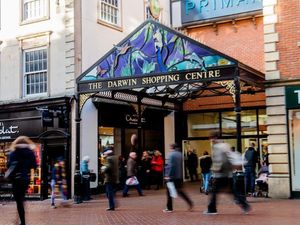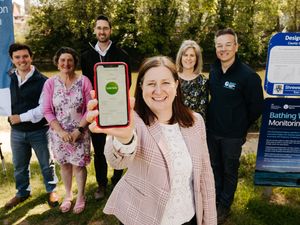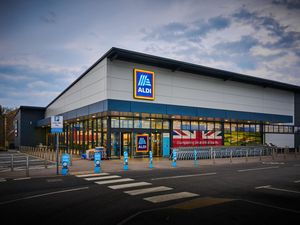Council's Shrewsbury shopping centre income was below target even before pandemic
The Shrewsbury shopping centres owned by Shropshire Council were bringing in less than half their projected income even before the pandemic hit, new figures show.

The authority has revealed that the Pride Hill, Darwin and Riverside centres made a net income of £1.425 million in 2019/20, compared to the £2.96m forecast in the business case used to justify the controversial purchase in January 2018.
It also represented a reduction on the £2.06m income the centres raised in 2018/19, which was itself a shortfall on the £2.7m expected that year.
The figures have been disclosed following a freedom of information (FOI) request by a member of the public, who said consultants who put together the acquisition business case had a “monumental fail on their books”.
Responding to the FOI request, the council said when the acquisition business case was prepared in 2017, “net income was anticipated to increase” between 18/19 and 19/20.
However, by the time the 19/20 budget was set, the forecast for that year had been revised down from £2.96m to £1.86m.
The council’s FOI response said: “Actual income realised in 2018/19 and 2019/20 was 76 per cent and 48 per cent respectively compared to the net income projections contained in the acquisition business case.”
Acknowledging the centres “have not performed as anticipated compared to the acquisition business case”, the council put the reduced income down to “unprecedented change in the retail sector” and the impact of the Covid pandemic, with the first lockdown beginning in the last few weeks of the 19/20 financial year.
It added: “Despite performance being below the projections determined at acquisition, the shopping centres have continued to deliver a net income for the council, so notwithstanding the centres being acquired for economic regeneration purposes, they have not been a burden to council tax payers and have instead delivered net income to support council services over this period.”
The council’s deputy leader Steve Charmley said the fall in income was “not unique to Shrewsbury”, and reiterated the council’s previous stance that the buildings were purchased as part of a wider plan to regenerate the town centre.
Councillor Charmley said: “There are widely reported falls in income across the UK as retailers and leisure operators face uncertain futures and changing business models, due to the effects of increased online shopping and Covid-19.
“Some of these trends were in evidence before Covid-19 as the UK over-supply of retail space became evident and Shropshire Council acted decisively to ensure control over the future development of the town centre.
“The council’s strategy has been to condense the retail offer from three centres to one thriving, vibrant and much improved shopping centre.
“The Darwin Centre is now the town’s premier covered shopping destination with regional and independent stores, together with popular national brands.”
Councillor Charmley said the income of the Pride Hill and Riverside centres had been impacted by efforts to move tenants out of the two buildings, with vacant possession required to enable the council to progress its plans for the two sites. Tenants were offered the chance to move into units in the Darwin Centre.
The Pride Hill Centre is set to become the new Shropshire Council headquarters from 2023, with space on the top floor set aside for leisure use, while the Riverside Centre is set to be demolished and the site redeveloped.
Councillor Charmley added: “The development of the Shrewsbury shopping centres will facilitate the wider transformation of Shrewsbury as part of the Big Town Plan.
“Each phase of the development will have physical and economic challenges, but the goal remains the same, to deliver a vibrant, sustainable, and commercially successful town centre.”
Meanwhile the latest valuation of the centres, which were purchased for £52m, is set to be published next month. The value had plummeted to £17.5m by July last year.





